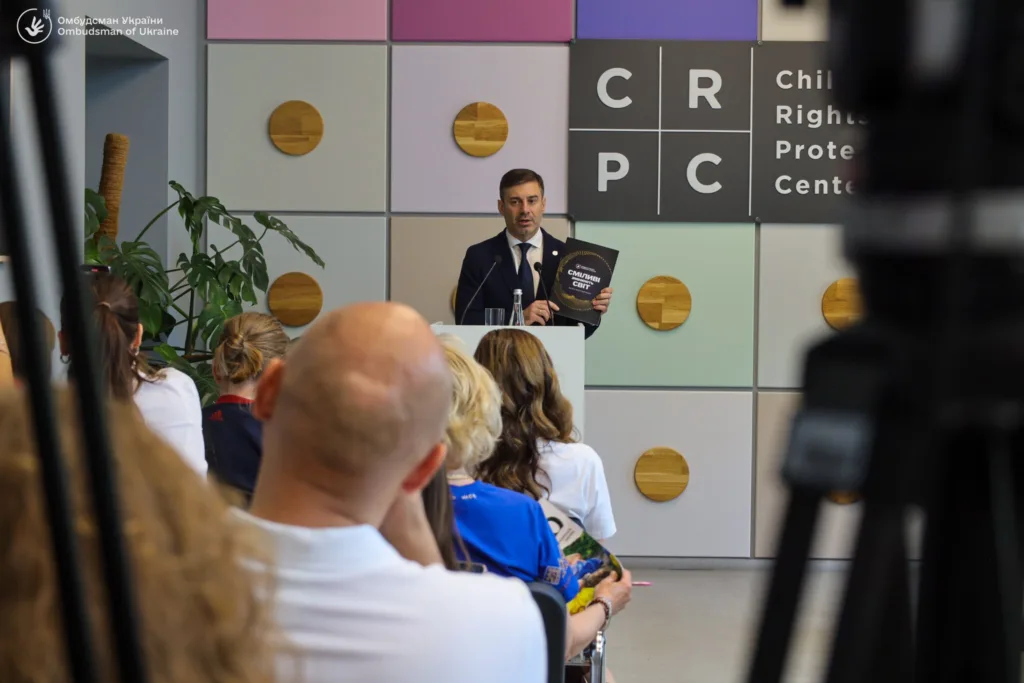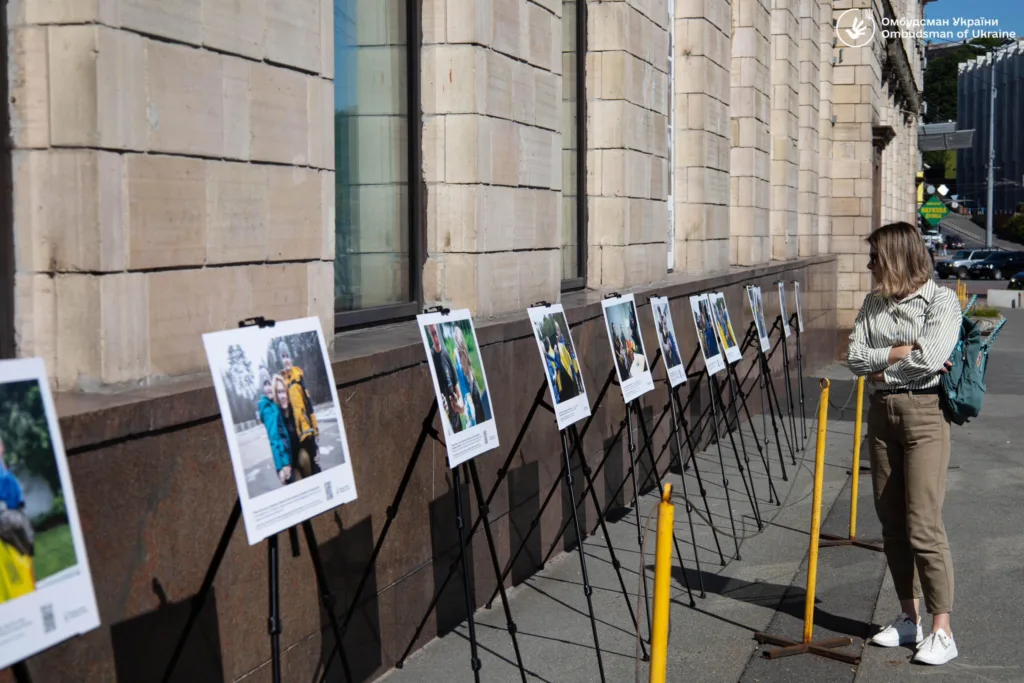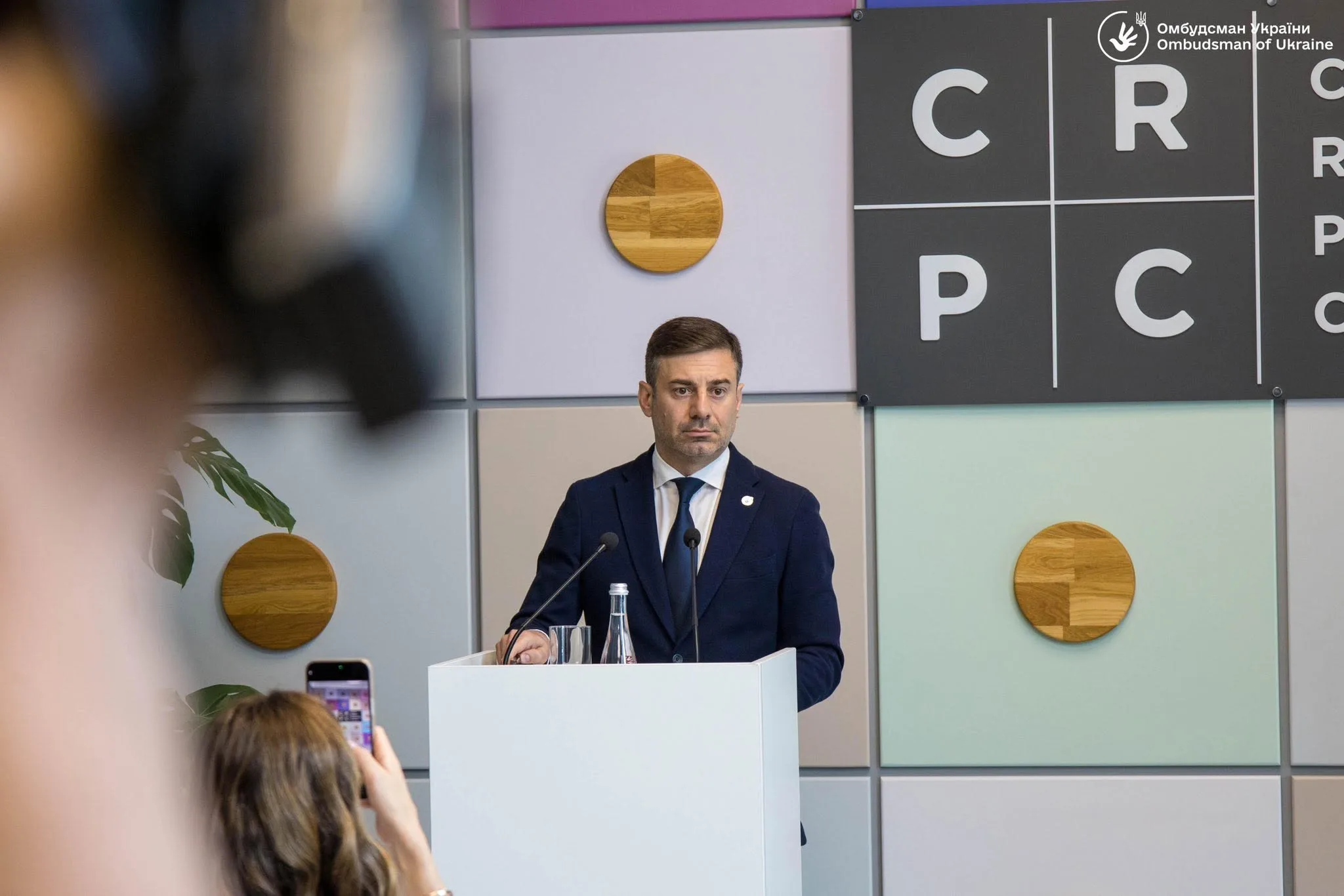The annual press conference of the Ukrainian Parliament Commissioner for Human Rights, Dmytro Lubinets, dedicated to his three-year anniversary in office, took place in Kyiv. The event was titled ‘The Brave Change the World’ and covered the most pressing issues, from prisoners of war to deported children.
According to Lubinets, over the years, ombudsmen have been appointed in every region of the country and regional human rights centres have been opened. But the most painful issues are the war and its consequences for the civilian population.
Read also: Life on the front line. Civilians targeted by drones
Prisoner exchanges and the Russian MIA
“To date, 65 prisoner exchanges have already taken place. We have returned 5757 military personnel, 294 civilian hostages and 1378 children,” Lubinets said. He stressed that the return of civilians is complicated by the fact that there is no formal exchange procedure for them. He also warned against a large-scale information campaign launched by Russia against the Ukrainian authorities. “Relatives of the prisoners are receiving calls from unknown people who say that Ukraine has refused to exchange them. Then they are offered to write a complaint to the United States. This is a targeted information and psychological operation aimed at discrediting the Ukrainian authorities in the international arena,” the ombudsman said.

The Ombudsman’s Office receives new information from former prisoners who have recently been returned. For example, about the practice of exchanging parcels and letters, which was launched on the eve of Christmas 2024. Many prisoners received these packages intact. Sometimes they were handed out, photos were taken, and they were taken back. Sometimes they were unpacked and shown what was in them, but not given back.
The practice continues when Ukrainian prisoners are taken out allegedly for an exchange, but later returned back to the colonies with the words: ‘You have been abandoned’. They immediately offer to issue a Russian passport and join their army.
Dmytro Lubinets emphasises that all this is happening on the instructions and under the full control of the central authorities of the Russian Federation.
Read also: How Pension Fund service centres operate in different regions of Ukraine
Return of deported children
Lubinets emphasised that the work on the return of deported children is a separate and extremely difficult area. To date, 1378 children have been returned. Qatar, which acts as a mediator in the negotiations, is helping in this. “According to our information, approximately one and a half million Ukrainian children in the temporarily occupied territories are potentially at risk of deportation. The main goal is to raise a new generation of Russian soldiers. Children’s documents are being changed, they are being forced to speak Russian, and they are being enrolled in the Unarmy,” the ombudsman said.

He acknowledges that it is currently impossible to stop these processes completely. ‘The only way is to put maximum international pressure on the Russian Federation,’ he added.
Rights of Ukrainians during mobilisation
Another aspect of the Ombudsman’s work is the protection of citizens’ rights during mobilisation. In 2024, the Ombudsman received more than 3,500 appeals. ‘In some cases, the violations were not confirmed, but more than 50 employees of the TCC and JV were brought to justice following our appeals,’ Lubinets said.
He also announced a new initiative to evacuate people from the occupied territories. “This year we have launched evacuation through third countries or through a single checkpoint in Volyn. This is a response to a large number of appeals from citizens,” the ombudsman stressed.
Read also: “Your neighbours are the first rescuers” – Magali Mourlon on localisation of aid and community resilience



